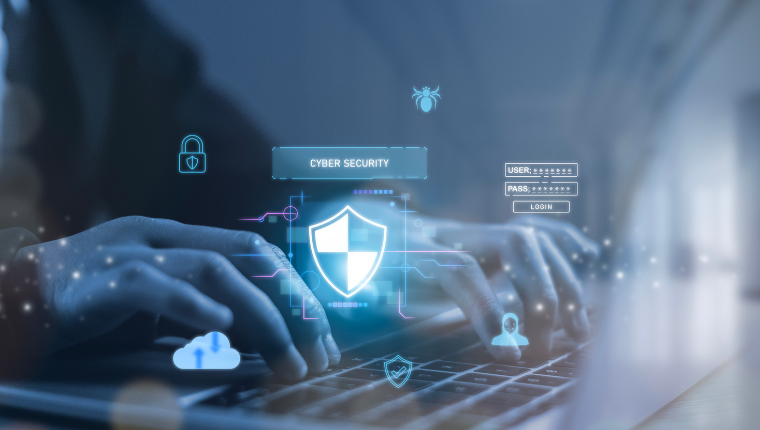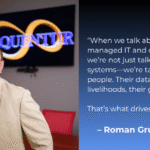If there’s one lesson businesses have learned in the past few years, it’s that cybersecurity threats don’t discriminate. Hackers don’t care if you’re a small business or a Fortune 500 company—if there’s a vulnerability, they will find it. That’s where Zero Trust Security comes in.
The old cybersecurity model of “trust but verify” no longer works. In today’s world, businesses need to assume that every device, every user, and every connection could be compromised. Instead of granting blanket access once someone logs in, Zero Trust requires continuous verification—every single time.
At Sequentur, we help businesses implement the Zero Trust model to eliminate blind spots, secure sensitive data, and reduce cyber risks. Let’s break it down and see why it’s the cybersecurity approach your business needs.
What is Zero Trust Security?
Zero Trust is exactly what it sounds like: Never trust, always verify.
In a traditional IT setup, once someone is inside your network, they often have free access to systems and data. That’s like letting someone into your office building and assuming they belong there without checking their ID at every door.
With Zero Trust, every user, device, and application must prove their legitimacy every time they attempt access.
Key principles of Zero Trust Security:
- Verify every request – Authentication happens continuously, not just at login.
- Least privilege access – Users and devices only get access to what they absolutely need.
- Assume breach – Always assume your systems are under attack and plan accordingly.
- Microsegmentation – Limit movement within the network, so a breach in one area doesn’t expose everything.
- Continuous monitoring – Threat detection and response happen in real time.
Why Businesses Need Zero Trust Now More Than Ever
Cyber threats are evolving. Ransomware, phishing attacks, insider threats, and supply chain vulnerabilities are on the rise. Here’s why Zero Trust Security is becoming non-negotiable for businesses:
1. Remote Work Has Changed Security Needs
Before, most employees worked in an office, behind corporate firewalls. Now, employees work from coffee shops, home networks, or co-working spaces—sometimes on personal devices. Zero Trust ensures that no matter where your employees are, they must prove they belong.
2. Cyberattacks Are More Sophisticated
Attackers aren’t just brute-forcing passwords anymore. They use AI, deepfake phishing, and social engineering tactics to gain access to sensitive data. Zero Trust makes it much harder for attackers to move laterally within a system.
3. Compliance and Regulatory Demands Are Growing
From HIPAA and GDPR to CMMC and PCI-DSS, regulatory requirements demand stricter data security. Zero Trust aligns perfectly with compliance standards, reducing liability risks.
How to Implement Zero Trust in Your Business
The good news? You don’t need to overhaul your entire IT infrastructure overnight. Here’s how Sequentur helps businesses implement Zero Trust Security step by step:
Step 1: Identify Your Assets
What data, systems, and applications need protection? We map out your entire IT environment to understand where vulnerabilities exist.
Step 2: Enforce Multi-Factor Authentication (MFA)
MFA is the cornerstone of Zero Trust. Even if an attacker steals a password, they won’t get in without a second verification factor.
Step 3: Apply Least Privilege Access
Not every employee needs access to all data. We ensure that users can only reach what they absolutely need for their jobs—nothing more.
Step 4: Segment Your Network
Microsegmentation ensures that even if an attacker breaches one part of your network, they can’t move freely to access everything else.
Step 5: Monitor & Respond in Real-Time
Using AI-driven threat detection tools, we continuously monitor for unusual activity and take action before damage is done.
Real-World Example: How Zero Trust Stopped an Attack
One of our clients, a professional services firm, nearly fell victim to a phishing attack that compromised an employee’s credentials. Without Zero Trust, the attacker could have accessed sensitive financial data.
But because we had MFA, microsegmentation, and behavior-based threat detection in place, the attacker was blocked at multiple points. Instead of a full-blown breach, it was just a failed login attempt. That’s the power of Zero Trust.
Zero Trust + Sequentur = Next-Level Security
At Sequentur, we don’t just talk about security—we implement real solutions that protect businesses from modern threats. Our Zero Trust approach ensures that your IT environment is locked down while keeping your operations running smoothly.
Why choose Sequentur for Zero Trust implementation?
- We assess your IT security gaps and create a step-by-step plan.
- We implement MFA, access controls, and monitoring tools without disrupting your business.
- We continuously manage and refine your security posture as threats evolve.
The Bottomline
The world of cybersecurity is changing, and businesses that fail to adopt Zero Trust are leaving themselves vulnerable to costly attacks. By implementing a Zero Trust Security model, you can safeguard sensitive data, ensure compliance, and prevent unauthorized access—before it’s too late.
Sequentur is here to help. Let’s build a cybersecurity strategy that works for your business today.
Call to Action: Ready to implement Zero Trust and secure your business? Contact us today and let’s get started!

















